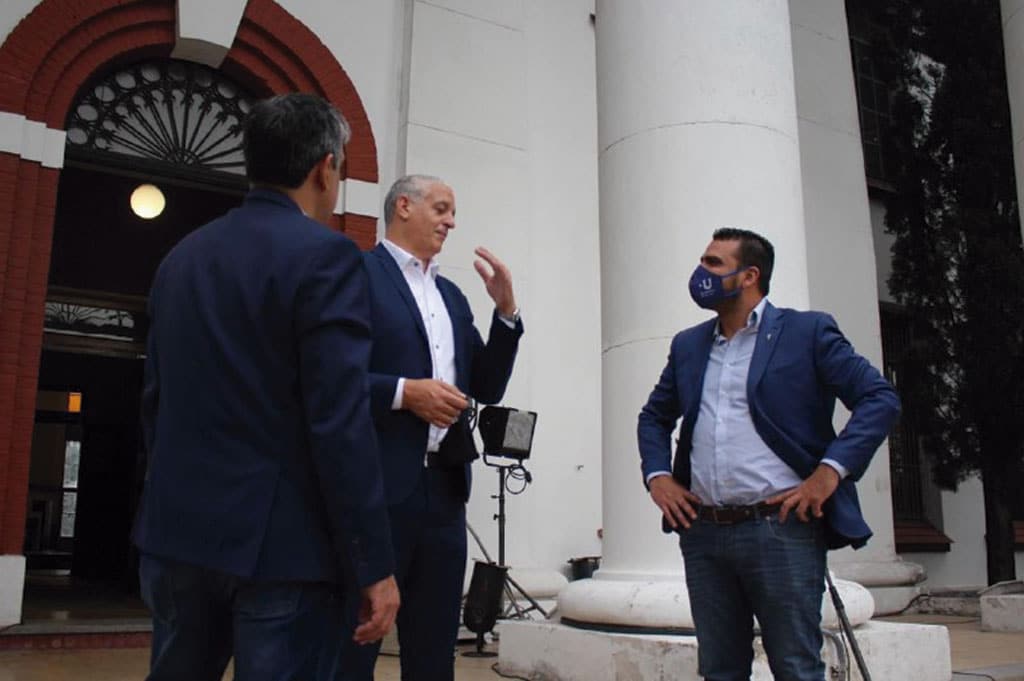Walter Vuoto expressed that “it was very moving to be able to visit this space, which is an invitation to reflect.” He recalled the memory of Néstor Kirchner who apologized for the years of silence of the national State in the face of the horrors that occurred during the dictatorship.
USHUAIA.- The mayor Walter Vuoto and the national senator Matías Rodríguez, toured the facilities of the Memory and Human Rights Space (Ex-ESMA), in the Autonomous City of Buenos Aires; accompanied by the Secretary of Human Rights of the Nation, Horacio Pietragalla.
This space was created on March 24, 2004 by then-President Néstor Kirchner, in an act of recognition of the systematic violation of Human Rights during the last military dictatorship.
Vuoto expressed that “it was very moving to be able to visit this space, which is an invitation to reflect on that speech that President Néstor Kirchner gave to all Argentines. He not only asked forgiveness on behalf of the State for the 20 years of oblivion and silence about the horrors that had occurred; but he also invited us to recover those dreams of so many missing comrades of a more just, free and sovereign homeland ”.
“This is a very special date for our country. 17 years ago, Néstor inaugurated this space and invited us to encourage ourselves to build a new country, which we defend with faith, with the capacity to love, and that do not fill us with the spirit of hatred because we do not have it, but neither do we want impunity ” Vuoto expressed, remembering Kirchner’s words.
Emblematic place
The ESMA was one of the most important detention, torture and extermination centers implemented by the last civic-military dictatorship in Argentina between 1976 and 1983. Crimes against humanity were committed here, which are being investigated and tried in federal courts. This property is one of the symbols of authoritarianism and criminal repression coordinated by the dictatorships of Latin America. The material and spatial existence of the ESMA is a living denunciation and evidence of the crimes of State terrorism.
Today it is a space open to the community, which seeks to preserve memory and promote and defend human rights. The Memory Space aims to contribute to the understanding of how State terrorism was planned and executed in Argentina and its consequences in the present, to help consolidate a democratic culture and full exercise of human rights.






:format(jpeg):focal(2001x730:2011x720)/cloudfront-us-east-1.images.arcpublishing.com/gfrmedia/NIUXOEKURBFHNJMNMXZPRR2TQA.jpg)